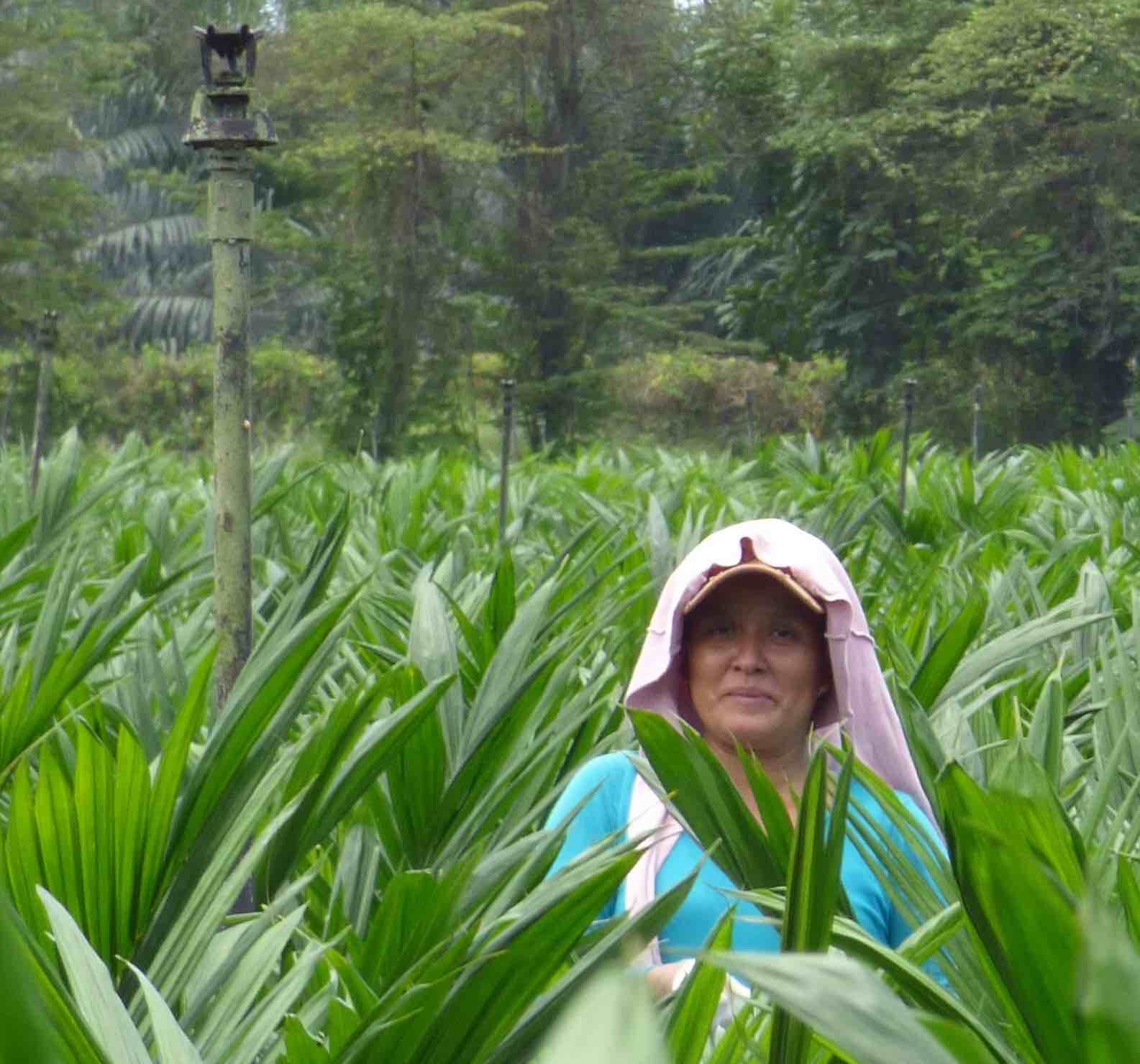The oil palm industry has grown considerably in Colombia in the last decade and is one of its agribusiness pillars, making up seven percent of the country’s agricultural GDP. Given the concern of consumers, the sector has been implementing strategies to ensure oil is produced in a sustainable way. In Colombia, Fedepalma—along with companies in the sector and civil society organizations—began to adopt voluntary sustainability standards such as RSPO, ISCC, and Rainforest Alliance. Under the Sustainable Palm Oil Program’s National Strategy, the volume of certified palm oil has increased.
To monitor progress, Solidaridad carries out a rigorous technical evaluation every year. This yearly evaluation makes it possible to present the country with a broad overview that is backed on data on palm oil production that meets various sustainability standards. This overview is geared towards compliance with Colombia’s environmental and social regulations as well as the Colombia palm oil industry’s position with respect to international markets.
The document takes into account global trends in palm oil production in order to draw comparisons between the worldwide market and national production, including the public-private initiatives and strategies to continue the sustainable development of oil palm in Colombia. The report highlights the following results:
Sustainable Palm Oil Production is on the Rise
In the last year, Colombia’s production of certified sustainable palm oil increased by five percent, reaching 406,000 tons (27 percent of all palm oil produced). While the number of companies (and the overall volume) certified by Rainforest Alliance in Colombia remained stable in 2019, the amount of oil produced under other certifications grew. With regard to 2018 figures, the volume of oil certified by the Roundtable on Sustainable Palm Oil (RSPO) and the International Sustainability and Carbon Certification (ISCC) increased last year by 13.9 percent and 11.7 percent, respectively.
Colombia is a palm oil producing country that has shown in recent years that it has a serious strategy for transforming the sector into a sustainable industry.” -Joel Brounen, Solidaridad Manager for Colombia
Colombia, the Largest Producer of Sustainable Palm Oil in the Region
In 2019, Colombia reaffirmed its regional leadership in the production of sustainable palm oil. Thanks to efforts in the sector in recent years, 27 percent of its production complies with some sort of voluntary certification standard.
As a consequence of this, there has been an increase in the amount of sustainable palm oil exported to Germany, which came to about 31,000 tons last year. This volume equates to approximately 57 percent of the 54,000 tons of crude palm oil that Germany imports from Colombia. This result shows the growing importance Colombia has in the supply of certified palm oil to the European market.
Sustainable Production for the International Market
The Netherlands continue to be one of the largest buyers of Colombian palm oil, and the European market increasingly demands greater compliance with international sustainability standards for the product to enter the continent. Colombia can continue to assert itself as a leader in sustainable palm oil production in the region.” -Ernst Noorman, Dutch Ambassador to Colombia
It is estimated that 89 percent of the Colombian palm oil exported to the Netherlands in 2019, which amounted to 238,000 tons, displays at least one of the available sustainability certifications, compared to the 256,000 tons exported in 2018, which represented 86 percent of the total imported by the Netherlands from Colombia.
Additionally, Colombia shows capacity to source palm oil free from deforestation and has opportunities to increase production without affecting Areas of High Conservation Value. This is made possible by greater public and private investments that foster not just mitigation, but also monitoring and prevention. These investments will allow Colombia to position itself as a differentiated source of sustainable palm oil.
Despite falling palm oil production and export figures in 2019, it is very encouraging that the share of sustainable palm oil in Colombia increased by five percent.
It clearly shows the conviction of Colombian palm oil producers about sustainable palm oil being the future. (At the same time) It is equally important that the domestic demand for certified palm oil in Colombia increases.
In 2018 Fedepalma, MVO – the Netherlands Oils and Fats Industry, Solidaridad and the Sustainable Trade Initiative (IDH) signed a joint declaration to increase the production and trade in certified sustainable palm oil.
EPOA welcomes this Solidaridad report because monitoring and transparency are key to achieve these goals. Ernst Noorman, Dutch Ambassador to Colombia.” -Frans Claassen, European Palm Oil Alliance, EPOA
Making Sure to Include Smallholders, a Challenge and an Opportunity
Colombia has an opportunity in the palm industry to develop and reactivate the economy in remote areas that have been ravaged by past violence. In order to create opportunities for smallholders in these areas, sustainability certifications must be adapted to require smaller, sequential steps to include small and medium producers in the sustainable supply chain. RSPO’s new simplified and phased standard for independent smallholders, as well as the ISCC and RSPO smallholder academies, represent supportive options to promote greater inclusion.
To reach the amount of palm oil sustainably produced and traded set by Fedepalma (75 percent in 2023), it is necessary to double investments, especially in the area of partnerships and trade deals. There is also a crucial need for greater trade incentives for buyers, and financial incentives for lenders and agricultural input providers.
Colombia has the opportunity to position itself as a global leader in the production of sustainable palm oil if it intensifies efforts made in recent years to include a greater number of smallholders in the adoption of sustainable practices.” -Maria Goretti Esquivel, Manager, Colombia Palm Oil Programme, Solidaridad

